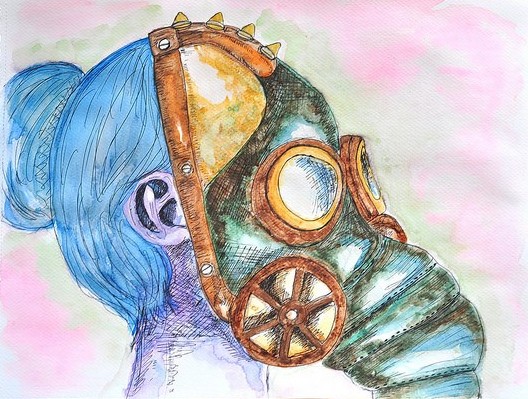Read next: When Blood No Longer Binds—Walking Away from a Toxic Family Member.
Breaking up with a friend, boyfriend or girlfriend is one thing and there’s a lot of advice out there for doing it, but what about a family break-up?
Most of us are not in a position to “just leave” nor do we feel we want to, or that it’s the right thing to do. So what do we do when a toxic family member (or members) is literally ruining our lives? How do we deal with the feeling of obligation, guilt, confusion and heartache?
It is important to note that not everyone’s family is there for them to lean on, to call on or to go home to. Not every family is built on the premise of interconnectedness, support and stability. Sometimes family simply means that you share a bloodline. That’s all. Some families build you up and some suck your energy dry.
There are relationships and friendships that just aren’t fixable—this includes family. There are situations that you can endure for only so long before you’ve outgrown them. There may come a crucial time when you have to separate yourself from your family in order to do what is best for you and possibly for them.
In many respects, the way we were treated by our family ends up being the same treatment we offer the world.
Often times the signal and energy we put out into the world is similar to or exactly what we have experienced by others. And for most of us, this influential force has been our family. Think about it. Think about just how much the interaction, or lack there of, from our family, sets the tone for the quality of energy we give off during our lifetime.
What is unacceptable treatment?
Rejection, abandonment, not taking the time to get to know you or to be in your life, making you feel unwelcome, someone being competitive or hypercritical of you, pressuring or forcing you to be someone you are not, blaming, ostracizing, manipulating, belittling, neglecting and abusing you…the list goes on and on and on. These types of experiences can make a deep imprint on our hearts and inhibit our ability to react without them being present in the back of our mind’s. Our reactions to life become skeptical, doubtful, fearful and we more often see the dark instead of the light in both people and situations.
These negative experiences can jade us for a lifetime, unless we learn to do whatever it takes to get ourselves into a positive nurturing environment and replace negatively influenced reactions with positive ones.
What are the signs indicating that you could use a break or change?
Your own health and mental well-being is damaged.
You feel emotionally, physically and/or spiritually injured.
The relationships with your immediate family/spouse/partner is suffering.
There is violence, physical and/or emotional abuse.
There is substance abuse.
There are constant struggles for power.
There is unnecessary distrust and disrespect.
What to do, how to get out…
1. Get group help. If it’s possible and your family/family member is up for it, get counselling.
2. If it’s possible move out. Move in with a friend, your partner, an extended family member. Get to a place where people want to be with you, try to move into a nurturing environment.
3. Accept your parents or family member’s limitations. Know that you don’t have to repeat their behaviour. You are not them.
4. Allow yourself to get angry. Use it productively. Exercise. Do sports. Use art and creative expression. Write in a journal. Don’t withhold your emotions.
5. Seek guidance for yourself. Talk to someone, a counsellor, a life coach, your yoga teacher—anyone who will listen, someone you feel comfortable with. Ask for help with change and with taking risks.
6. Limit your time. Do whatever it takes to limit the amount of time you have to spend with the toxic family/family member. Limit visits, holidays, do what you can to prevent as much conflict as possible.
7. Set healthy boundaries. Try to not allow yourself to get sucked back in. You can love and wish them the best from a distance.
8. Learn ways to protect yourself. Practice meditation. Learn to be patient with yourself and others.
9. Become aware of yourself. Observe your reactions. Become more self-aware in order to break negative patterns as much as you can.
10. Practice doing good things for yourself. Do things that build self-esteem. Do things you enjoy. Invite others that love you along.
11. Create balance in your life. Take care of yourself physically and eat a balanced healthy diet. Be aware and be cautious of things you may do compulsively (eating, shopping, drinking, etc)
12. Take charge of your life and your happiness. Don’t wait for others to give it to you.
Is it wrong to hold grudges (is life too short)?
Have you experienced a family break up?
Do you have any suggestions?
Relephant read:
Why Some Parents & their Children have Great Friendships.
Image: Flickr



Read 271 comments and reply